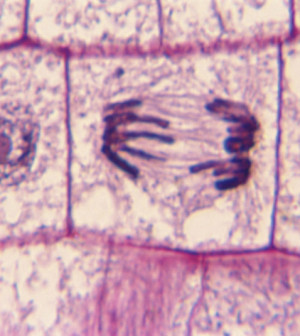- Could Your Grocery Store Meat Be Causing Recurring UTIs?
- Are You Making This Expensive Thermostat Error This Winter?
- Recognizing the Signs of Hypothyroidism
- 10 Strategies to Overcome Insomnia
- Could Artificial Sweeteners Be Aging the Brain Faster?
- Techniques for Soothing Your Nervous System
- Does the Water in Your House Smell Funny? Here’s Why
- Can a Daily Dose of Apple Cider Vinegar Actually Aid Weight Loss?
- 6 Health Beverages That Can Actually Spike Your Blood Sugar
- Treatment Options for Social Anxiety Disorder
Anti-Aging Process Rejuvenates Lab Mice: Study

In what sounds like a sci-fi movie come true, researchers say they used gene manipulation to counter aging in mice.
Using a process called cellular reprogramming, the scientists said they also made human skin cells appear and act young again in a laboratory dish.
“Our study shows that aging may not have to proceed in one single direction,” said study senior author Juan Carlos Izpisua Belmonte. He’s a professor in the gene expression laboratory at the Salk Institute for Biological Studies in La Jolla, Calif.
“It has plasticity and, with careful modulation, aging might be reversed,” Izpisua Belmonte said in an institute news release.
Of course, more research is needed to confirm the findings in mice. And the results of animal studies often fail to be duplicated in humans.
“Obviously, mice are not humans and we know it will be much more complex to rejuvenate a person,” Izpisua Belmonte said.
The researchers said they triggered “expression” of genes normally associated with an embryonic state for short periods of time. In this way, they said, they reversed the effects of aging.
Using this approach, the researchers said they also rejuvenated mice with a premature aging disease, increasing their lifespan by 30 percent.
The paper was published in the Dec. 15 issue of the journal Cell.
The researchers said the study offers new insight into cellular causes of aging and might point to new ways to improve people’s health and longevity.
However, any potential therapies that might result from this early stage research could take up to 10 years before the start of clinical trials, the study authors said.
More information
The U.S. Centers for Disease Control and Prevention offers healthy aging resources.
Source: HealthDay
Copyright © 2026 HealthDay. All rights reserved.










